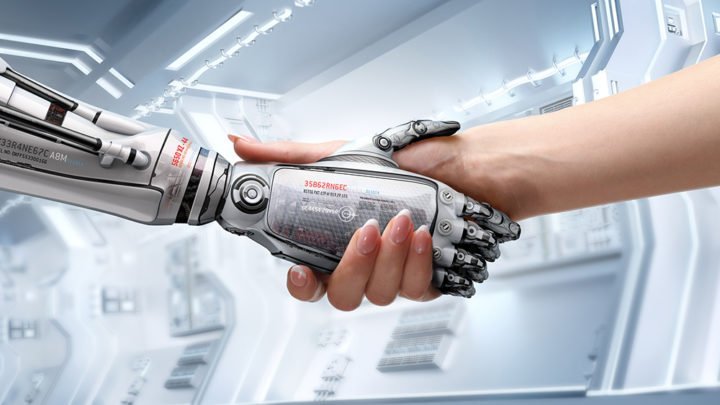Each time period brings its own big question that humankind struggles with. The 20th century, for example, challenged people with technological advancements. The innovations continue to this day but pose a different question. Technology has become an inseparable part of our daily lives and we’re so used to automation that even the slightest error in our appliances can cause huge inconveniences.
Technology is an umbrella term, which now covers many things from artificial intelligence (AI) to robotic automation and blockchain. The role of technology is controversial, and especially automation is the never-ending and ambivalent phenomenon of the 21st century. People love it because it makes our lives easier but it also poses a threat of taking over the job market and leading to unemployment.
So, how does robotic automation affect the job market? Let’s find out together.
Automation increases productivity
There is certainly a lot of fear and skepticism around robotics. Every day there are new alarming headlines about AI taking over the job market and worrying predictions about human labor. More detailed and thorough studies, however, show the positive impact of automation on job market.
One of the upsides of automation is enhanced productivity. We live in a century of fast turnarounds and automation can help companies give fast results without compromising the quality of their product or service. In her recent Forbes article, Kweilin Ellingrud wrote,
“At Wing Enterprises, productivity rose 30 percent, leading the company to build a new facility and expand from 20 employees to 400. It confirms that automation can create jobs, and can also lead to upskilling and shifting responsibilities to manage robots on the production line.”
Automation is indeed a game-changer, and it’s changing the nature of how companies operate.
Automation can minimize the risk of errors
In certain industries, especially those which work with data, even the slightest error can have very serious repercussions. Robotic automation can help employees avoid such mistakes and provide flawless results. This is the key to reinventing your company in the digital age.
Automation of cloud provisioning or database configurations can reduce the risk of data breaches. Eliminating the human element in this process doesn’t mean a technology takeover. It simply makes more sense and actually gives the employee more time and mental energy to spend on other tasks. People are more prone to making mistakes when they’re performing the same task over and over again. Whereas, in the case of automation, repetition makes it perfect.
Creativity over mundane tasks
There is one thing that is hard for robotic automation to achieve and that’s creativity. The emergence and integration of automation in the job market can help employees to concentrate on creative tasks rather than performing mechanical ones.
Automation creates time that companies can use to innovate, create and develop their products and services. Robotic automation not only gives space to creativity but also spares people with mundane tasks. Consider the example of the cleaning industry. Dishwashers came to replace the whole washing-dishes-by-hand situation, and washers and dryers are our best friends.
Robotics has more to offer to the cleaning industry and now we have robotic vacuum cleaners that are real game-changers. No more loud noises and heavy vacuum cleaners, the robotic vacuum cleaner takes care of floors and carpets. This product, itself can change the whole course of the cleaning industry and it’s all thanks to automation.
Time is gold and it’s our biggest asset. Robotic automation helps us save time and focus our physical and mental energy on tasks that excite and fulfill us.

Automation creates jobs
Last but not least, automation creates jobs contrary to the prevailing belief. “Machines and algorithms in the workplace are expected to create 133 million new roles, but cause 75 million jobs to be displaced by 2022 according to a new report from the World Economic Forum (WEF) called The Future of Jobs 2018.” writes Amit Chowdhry in his article. How? Technology grows day by day and it doesn’t grow on its own, there are people behind it, who create new updates and add new features.
The demand and implications of automation are high, and that creates job opportunities for people to “supervise” the work it does. The World Economic Forum report indicates an estimated increase of jobs in different industries, for instance, aviation and tourism.
As I mentioned earlier, automation will perform the physical tasks allowing people to take over more creative and productive tasks, so jobs that require those skills (e.g. sales, marketing, etc.) will also increase in number.
To wrap up
Robotic automation is here and it is impacting the job market. With smart management, the perks of automation will surpass the cons. It will add more and better jobs to the market and help us save time for our favorite activities.




